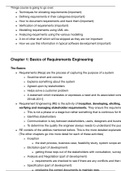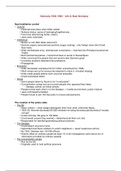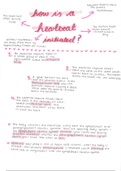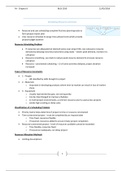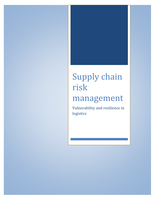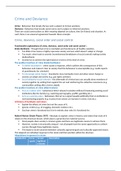Class notes
IB HL/SL History Paper 1 - The Move to Global War: Comparison between Hitler and Mussolini
- Course
- Institution
- Book
With these notes, I was able to attain a grade 7 in HL History during the 2018 November IB Exam Session. A grade 7 is the highest score attainable for this subject. This set of notes will be relevant to those taking IB HL AND SL History PP1 - The Move to Global War. It specifically focuses on the...
[Show more]





